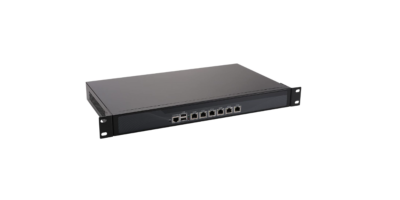In today’s fast-evolving digital healthcare environment, IT system migrations are not just inevitable – they’re essential. Whether driven by the need for improved performance, compliance updates, or scalability, migrating healthcare IT systems can unlock numerous benefits. However, the process is not without challenges. For healthcare organizations, where patient safety and data accuracy are paramount, the stakes are significantly higher. In this blog, we will discuss common challenges healthcare IT teams face in system migration.
10 Key Challenges Healthcare IT Teams Face in System Migration
Let’s explore the key challenges healthcare IT teams face in system migration and how to overcome them effectively.
1. Data Loss and Integrity Risks
One of the most critical challenges healthcare IT teams face in system migration is maintaining data integrity. Healthcare systems handle massive volumes of sensitive data, including patient records, lab results, prescriptions, and insurance claims. During migration, there’s always a risk that some data may be lost, corrupted, or duplicated.
Solution:
Rigorous data backup procedures, verification tools, and test migrations can help ensure no critical data is lost. Conducting trial runs and post-migration audits adds an extra layer of security.
According to a MoldStud 2025 survey, 70% of healthcare organizations experienced data quality issues during system migration. Therefore, it is crucial to have a solid data governance plan in place before undergoing any system migration. This includes identifying and prioritizing data elements, establishing rules for data cleansing and validation, defining ownership and accountability for data quality, and setting up regular monitoring processes.
2. Ensuring Regulatory Compliance
Healthcare organizations must comply with stringent regulations like HIPAA, HITECH, and other state-specific data protection laws. A system migration process that doesn’t align with these standards can lead to hefty penalties or data breaches.
Solution:
Work closely with compliance officers and legal experts during planning. Choose IT partners who are experienced in HIPAA-compliant migrations and provide audit trails, access controls, and encryption.
3. Downtime and Service Disruption
Downtime can severely impact healthcare facilities, where real-time access to information is essential for patient care. A poorly managed migration could disrupt critical operations like admissions, treatment scheduling, or diagnostics.
Solution:
Schedule migrations during off-peak hours and create a phased migration plan. Have contingency systems in place to ensure that essential services remain functional even during downtime.
4. Compatibility Issues with Legacy Systems
Many healthcare organizations still rely on legacy systems that may not easily integrate with newer platforms. This incompatibility can cause significant delays and require expensive custom solutions or middleware.
Solution:
Before migration, conduct a full audit of existing systems and applications. Assess compatibility and identify systems that need upgrading. Investing in integration platforms or APIs can reduce friction.
5. User Training and Adoption
Migrating to a new system often introduces changes in workflows and interfaces, which may lead to confusion or resistance among healthcare staff. Inadequate training can reduce productivity and increase errors.
Solution:
Develop a comprehensive training and onboarding program tailored to different roles. Provide ongoing support and gather feedback to continuously improve user experience and adoption rates.
6. Scalability and Future-Proofing
Healthcare organizations need solutions that scale with growth and technological advancements. A system that doesn’t support future integrations or cloud capabilities may require another migration down the line.
Solution:
Choose systems that are flexible, cloud-compatible, and designed with scalability in mind. Partner with IT consultants who understand long-term healthcare IT strategy and future-proof architecture.
7. Security Vulnerabilities During Transition
Migrating data between systems opens temporary windows of vulnerability, especially if the data is transferred without encryption or sufficient monitoring. Cybercriminals often target transitions as opportunities to breach systems.
Solution:
Use encrypted channels, VPNs, and endpoint protection during migration. Conduct real-time monitoring and involve cybersecurity experts to safeguard sensitive data throughout the process.
8. Cost Overruns
System migrations can quickly exceed budget if poorly planned. Hidden costs may include licensing, hardware upgrades, third-party integrations, and extended downtime.
Solution:
Start with a clear scope, budget estimates, and timeline. Include contingencies and prioritize features that are essential. Engage experienced IT consultants who can foresee potential cost escalations and help you stay on track.
9. Stakeholder Alignment and Communication Gaps
When key stakeholders – from clinicians to administrative staff – aren’t aligned on the objectives and process of the migration, confusion and project delays can arise.
Solution:
Maintain transparent communication across departments. Appoint a dedicated project manager who bridges the gap between IT teams and healthcare leadership. Regular status meetings and clear documentation are key.
10. Post-Migration Performance Issues
After the system is live, performance lags or bugs can frustrate users and affect patient care. These issues often arise when testing phases are skipped or performance benchmarks aren’t set.
Solution:
Include a robust post-migration monitoring plan. Gather user feedback, fix bugs promptly, and track system performance against defined KPIs. Keep your IT team engaged well beyond the migration.
Final Thoughts
The challenges healthcare IT teams face in system migration are multifaceted but not insurmountable. With the right planning, resources, and IT support, healthcare organizations can modernize their systems while ensuring patient safety, compliance, and operational continuity.
Partner with Experts in Healthcare IT
At Medical ITG, we specialize in managed IT services for healthcare, offering secure, compliant, and efficient solutions tailored to your organization’s needs. Whether you’re planning a full system migration or upgrading specific components, our team can help minimize risk and maximize efficiency. Contact us today on (877) 220-8774 or email at info@medicalitg.com to learn more.










